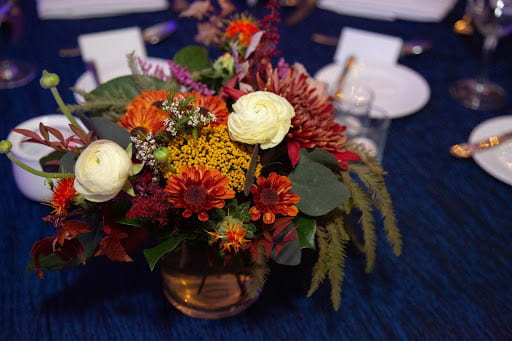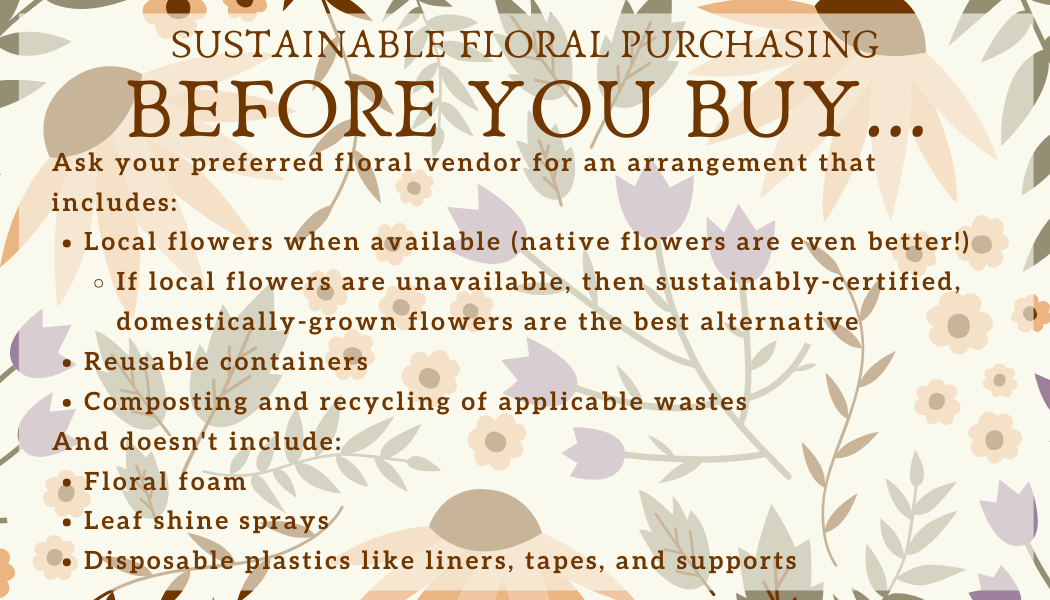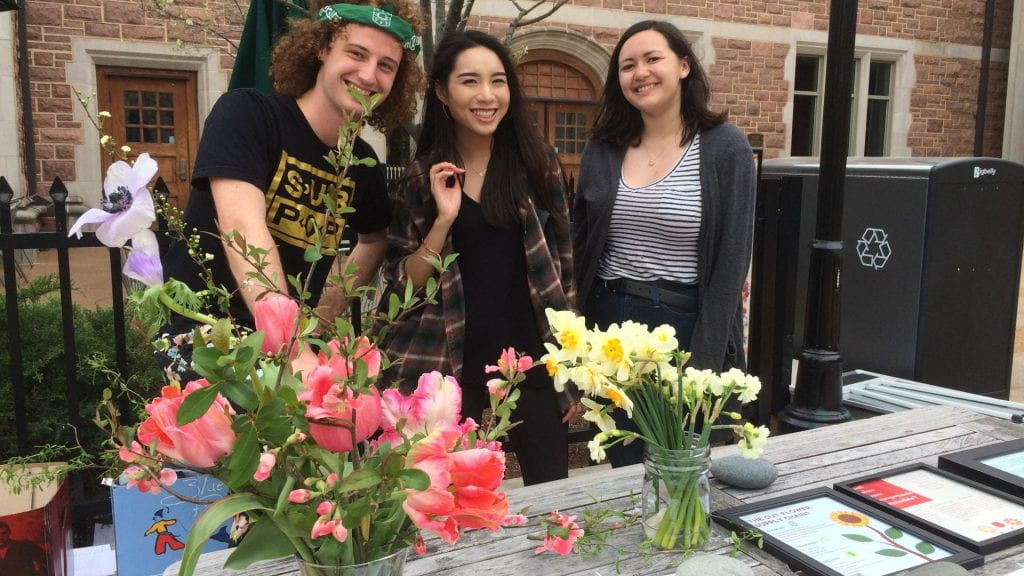Most people don’t realize that the floral industry generates many of the same environmental and social concerns as the food industry. Concepts such as local sourcing; waste reduction through reuse, composting and recycling; avoiding pesticides and chemicals; and fair compensation and safe conditions for workers – all of which have been embraced in responsible food sourcing – can be applied to floral purchases for events and decorations.
About 80% of cut flowers sold in the United States are imported from Latin American countries, where they are typically subject to minimal environmental and labor regulations. As a result, floral production often involves heavy chemical applications, intensive water use, and low-wage labor. On top of this, local habitats, which are crucial to native flora and fauna, have been eliminated to make room for flower farms in equatorial countries. Since most cut flowers are grown abroad, a significant amount of energy goes into the cold storage and transportation of flowers before they reach US markets. Finally, foreign-grown flowers must be dipped in a toxic fungicide bath to kill pests and diseases before they cross the US border. Since flowers aren’t consumed like food, the USDA does not regulate the type or quantity of chemicals in this mandatory fungicide application. Nevertheless, we put flowers on tables, where “dislodgeable foliar residues” (DFRs) can come into contact with our hands and our food.
Purchasing local flowers is an easy way to avoid many of the environmental harms caused by the cut flower industry. However, floral arrangements themselves can present environmental concerns because they often incorporate single-use plastic supports and non-biodegradable materials like floral foam, which is also a known source of carcinogens. When arrangements are broken down, their components may not be properly sorted to ensure that appropriate materials are recycled, composted, and reused, rather than added to a landfill. When florists don’t prioritize sustainability, floral arrangements may include toxic materials and generate excess landfill waste.
Of the many events taking place on campus every day, only a fraction include fresh flowers in the decor. However, high-profile events such as Commencement will incorporate an abundance of flowers and floral arrangements to contribute to the beauty and ambiance of the event. According to the Resource Management department, WashU event planners spend approximately $350,000 on floral arrangements each year. WashU’s institutional purchasing power provides an opportunity to positively impact floral sustainability and the local economy.
Some WashU event planners are already connecting with florists that exemplify best practices in floristry. One such florist, Flowers & Weeds, was selected for two recent events: the Scholars in Arts & Sciences Dinner on November 3 and the OWN IT Women in Leadership Conference on November 9. Flowers & Weeds is a local, women-owned florist on Cherokee Street that started in 2012 and has since purchased a nearby lot where they grow their own flowers.

Photo by Mia Smutz-Ulmer, Birchtree Studio
Both Michelle Gelven, Associate Director of Development, Alumni & Constituent Relations, Arts & Sciences and Janelle McAfee, Logistics Coordinator for OWN IT 2019, said that Flowers & Weeds was easy to work with, met all of their requests, and responded promptly to questions and changes. Janelle explained: “I called them and asked what flowers would be in season in early November and they walked through possible flowers we could use in our color scheme of blue, white, and pink. They made bouquets that fit our budget… and I thought they were perfect for what we were looking for.”
This article was written by Rose Ho, Maia Sanders, Sophie Watterson and Annie Yaris, members of the Sustainable Flowers Team who are currently enrolled in the Sustainability Exchange course. The Sustainability Exchange is an undergraduate course that recruits interdisciplinary students to tackle sustainability challenges in the St. Louis community under the guidance of a faculty mentor. The Sustainable Flowers Team has spent the past three semesters researching and articulating floral sustainability standards to guide WashU event planners’ purchasing decisions. The floral sustainability standards have been incorporated into the Office of Sustainability’s Green Events Certification Program. A list of recommended florists, FAQs on sustainability in floral arrangements, and things to consider when selecting a florist are also available within the library of green event planning resources.
You can learn more about the project at the Sustainability Exchange Reception and Poster Presentation on December 5, 2019 from 3:00 p.m. – 4:30 p.m. on the third floor of Green Hall. The event is free and open to the public.

